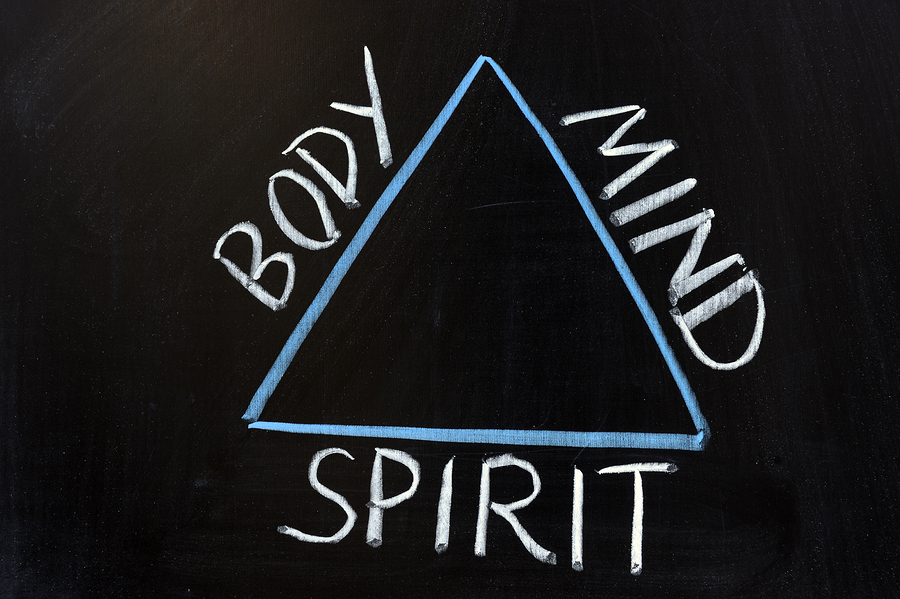A few years back I received a call from a concerned daughter.
 Near tears she reported that her family was at the end of the rope. Her mom was acting erratically and was experiencing wild mood swings. One moment she was depressed, crying, and sleeping a lot. The next she was more enthusiastic and hyperactive than ever. Her family felt that she was bipolar and wanted me to help her NOW because they feared she might need to be institutionalized!
Near tears she reported that her family was at the end of the rope. Her mom was acting erratically and was experiencing wild mood swings. One moment she was depressed, crying, and sleeping a lot. The next she was more enthusiastic and hyperactive than ever. Her family felt that she was bipolar and wanted me to help her NOW because they feared she might need to be institutionalized!
Upon hearing that mom was in her 50s and this was a recent development, I probed for more information. (This is not impossible for someone who is bipolar, but is not typical). It turned out that in addition to the mental health symptoms her daughter described, mom also had some pretty telling physical issues. Mom was overweight and couldn’t lose weight despite having normal portions of food. She suffered from chronic constipation and diarrhea. She had skin rashes, bloating, gas, and anemia. Additionally, she was lactose intolerant.
I felt that mom’s problem was primarily, if not totally, related to a physical problem- celiac disease.
I recommended that she immediate adopt a gluten free diet. If that resulted in positive changes, she should get tested for celiac disease. If her symptoms persisted after making dietary changes, that would be the time for counseling. Her daughter sounded skeptical, but thanked me for listening.
A few weeks later, I received a call letting me know that mom did as I suggested and got immediate relief from her symptoms. The results of her test confirmed that she had celiac disease and this gave the family a tremendous amount of relief to know that not only was mom not “crazy,” but she had a natural way of controlling her mood swings.
Although celiac disease is becoming more and more common, there are still many people that are not aware of what it is and how it affects the body.
As October is celiac awareness month, I’d like to take the time now to talk about that.
Celiac disease is an autoimmune disorder caused by the body’s inability to tolerate gluten, a substance found in wheat and other grains. When gluten hits the small intestine, inflammation occurs which damages the villi responsible for absorbing nutrients. The symptoms are due to either malabsorption or malnutrition and are not the same in every person.
Symptoms of celiac disease include
- stomach bloating
- foul smelling gas
- constipation
- diarrhea
- light tan or grey, large, foul smelling, oily stools
- difficulty digesting dairy products
- weight loss (more common) or inability to lose weight
- fluid retention
- anemia
- osteoporosis or osteopenia
- infertility
- muscle weakness
- bruising easily
- fatigue or low energy
- depression
- migraines
- mouth ulcers
- tingling or numbness in the hands or feet
- irritability
- sleep disturbances
- hyperactivity or hypo-activity
- anxiety
- mania
Celiac disease used to be considered a child’s disease, but we now know that the onset can occur at any age. Usually it tends to coincide with a stressful event like a surgery, viral infection, pregnancy, childbirth or emotional upset. Damage to the intestine is irreversible and may occur without any symptoms at all. If left untreated, the patient will eventually die of diseases related to malnutrition despite having adequate food intake.
If you are experiencing signs of depression, anxiety, ADHD, bipolar disorder or schizophrenia, it might be worth your while to try a gluten free diet for a while to see if your symptoms improve. This particularly true if you have other symptoms listed above. You may not have a mental health issue at all. It could be celiac disease. I’ve seen a gluten free diet make counseling and psychotropic drugs completely unnecessary in some people, so why not give it a try? For a list of things you can eat on a gluten free diet, click here. For a list of what to avoid, click here.
Laura Giles is a contributing blogger for JenningsWire.





